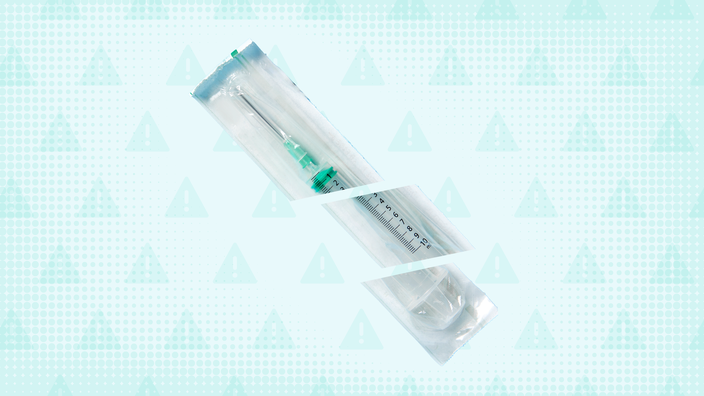To relieve flu shot side effects, apply a cold compress to the injection site and take over-the-counter pain relievers. Stay hydrated and rest to help your body recover.
Experiencing side effects after getting a flu shot can be uncomfortable, but these reactions are typically mild and short-lived. The flu vaccine is crucial in protecting individuals and communities from the influenza virus. While some people may develop soreness at the injection site or a low-grade fever, these symptoms are a sign that your immune system is responding to the vaccine.
Taking simple steps to manage side effects can ease any discomfort and facilitate a quicker recovery. Ensuring that you’re prepared to handle possible reactions not only improves your comfort but also maintains your commitment to public health. Remember, the benefits of vaccination far outweigh the temporary inconveniences of side effects.
Dealing With Common Flu Shot Reactions
Getting a flu shot is your best defense against the flu. Yet, some people experience side effects. These reactions are usually mild and short-lived. Knowing how to handle them can make your flu shot experience much more pleasant.
Spotting Typical Symptoms
After a flu vaccination, you might notice some changes in your body. Spotting these common symptoms early is key to managing them:
- Soreness or swelling at the injection site
- Mild fever
- Fatigue
- Headaches
- Muscle aches
These symptoms suggest your body’s immune response is working. They should fade away in a couple of days.
When To Seek Medical Attention
If symptoms persist or worsen, it’s crucial to seek medical advice. Watch out for severe reactions such as:
- High fever
- Difficulty breathing
- Swelling around the eyes or lips
- Hives
- Weakness or dizziness
Contact your healthcare provider immediately if any of these occur. Severe reactions are rare but require prompt attention.
Managing Mild Reactions At Home
Simple home remedies can alleviate most mild flu shot side effects. Follow these steps to ease discomfort:
- Apply a cool compress to the injection site to reduce soreness and swelling.
- Use an over-the-counter pain reliever, if needed, to ease body aches and fever.
- Drink plenty of fluids to stay hydrated.
- Rest as much as possible to help your body recover.

Credit: www.vaccineinjuryteam.com
Home Remedies For Immediate Comfort
Feeling under the weather after your flu shot? You’re not alone. Common side effects like soreness and mild fever can be bothersome. But don’t worry! Tackle discomfort right at home with simple remedies. These tips promise swift relief, ensuring you bounce back quickly.
Applying Cold Compresses
Chill and comfort—it’s that simple. Cold compresses reduce swelling and numb soreness. Follow these steps:
- Wrap ice in a clean cloth.
- Gently apply to the injection site.
- Hold for short intervals, taking breaks.
- Avoid direct skin contact with ice.
Staying Hydrated
Water is a healing elixir. Staying hydrated eases flu shot side effects in surprising ways. Here’s what good hydration does:
| Benefit | How It Helps |
|---|---|
| Faster Recovery | Flushes out toxins. |
| Less Fatigue | Restores energy levels. |
| Better Immune Function | Supports the body’s defenses. |
Drink plenty of fluids—water, juice, or herbal teas. Consider fruits with high water content for an extra boost. Keep sipping throughout the day!
Over-the-counter Solutions
Experiencing discomfort after a flu shot is common. Many seek relief through over-the-counter options. Safe, effective treatments ease symptoms quickly. Let’s look at popular remedies.
Choosing The Right Pain Reliever
Selecting a suitable pain reliever is crucial. Options are plentiful. Consider these:
- Acetaminophen: Reduces pain and fever.
- Ibuprofen: Alleviates pain and inflammation.
- Aspirin: Not recommended for children under 18.
Read labels carefully. Follow age and dosage guidelines.
Advice On Anti-inflammatory Drugs
Anti-inflammatory drugs reduce swelling and discomfort. Use them as directed. Consider these tips:
| Drug Type | Benefits | Precautions |
|---|---|---|
| Non-Steroidal Anti-Inflammatory Drugs (NSAIDs) | Pain relief, reduce inflammation | Avoid on an empty stomach |
| Corticosteroids | Relieve severe inflammation | Short-term use recommended |
Check with a healthcare professional before starting corticosteroids.

Credit: www.myvaccinelawyer.com
Natural And Alternative Methods
Feeling under the weather after your flu shot? Natural and alternative methods can help ease those side effects. Many people turn to simple, home-based remedies to reduce discomfort and promote recovery. The following are gentle, yet effective, ways to alleviate symptoms using herbs, supplements, and relaxation techniques.
Utilizing Herbs And Supplements
Nature’s pantry offers a variety of options to support your body post-vaccination. Check out this list to boost your recovery:
- Echinacea – This herb might support immune function.
- Vitamin C – Known for its immune-boosting properties.
- Zinc – Can help reduce inflammation.
- Elderberry – Often used to fight flu symptoms.
- Ginger – May ease nausea and soothe an upset stomach.
Remember to talk to a healthcare professional before taking supplements, especially if you have underlying health conditions or are taking other medications.
Exploring Relaxation Techniques
Reducing stress is key to recovery. Here are some stress-busting strategies:
- Meditation – Helps calm the mind and eases bodily tension.
- Deep Breathing – Slows the heartbeat and can lower blood pressure.
- Gentle Yoga – Combines breath and movement for overall wellness.
- Warm Baths – Soothing waters can relieve muscle aches.
- Aromatherapy – Essential oils like lavender can promote relaxation.
Implement these practices into your daily routine to help your body find balance and peace during recovery.
Preventive Measures For Next Time
Getting a flu shot is a smart move to stay healthy. Sometimes, side effects occur. Next time, try these tips to ease them. Prepare ahead and minimize discomfort.
Optimizing Arm Movement Post-vaccination
Keep your arm active post-shot. Movement helps. It eases stiffness and soreness. Swing your arm gently. Do arm circles. Stretch lightly. These simple actions increase blood flow. More blood flow can speed up healing.
Planning Vaccinations Strategically
Timing is key for vaccines. Don’t rush appointments. Space them out. Check your calendar. Aim for a free day post-vaccination. Rest if needed. Drink plenty of fluids. Keep your body hydrated. A well-planned vaccine schedule gives your body time to adjust.
- Maintain arm movement post-shot
- Choose a quiet day for the vaccine
- Stay hydrated
- Space out vaccines if possible

Credit: www.goodrx.com
Frequently Asked Questions On How To Relieve Flu Shot Side Effects
How Can I Reduce The Side Effects Of The Flu Shot?
To minimize flu shot side effects, stay hydrated, apply a cold compress to the injection site, move your arm regularly, take an over-the-counter pain reliever if necessary, and rest adequately.
How Long Does It Take To Recover From Flu Vaccine Side Effects?
Most people recover from flu vaccine side effects within a few days. Common symptoms like soreness or fever typically resolve within 1-2 days.
Why Do I Feel Terrible After Flu Vaccine?
Feeling terrible after a flu vaccine is often a result of your immune system responding and creating antibodies; mild side effects are common and usually short-lived.
How Do You Stop Feeling Sick After A Flu Shot?
To alleviate sickness after a flu shot, stay hydrated, rest, use a cool compress, take approved pain relievers, and avoid strenuous activity.
Conclusion
Dealing with flu shot aftereffects shouldn’t disrupt your routine. Simple measures like cold compresses, hydration, and rest can spell relief. Always consult a doctor for persistent symptoms. Remember, these tips aim to ease your discomfort and ensure your well-being post-vaccination.
Stay informed, be prepared, and keep healthy.